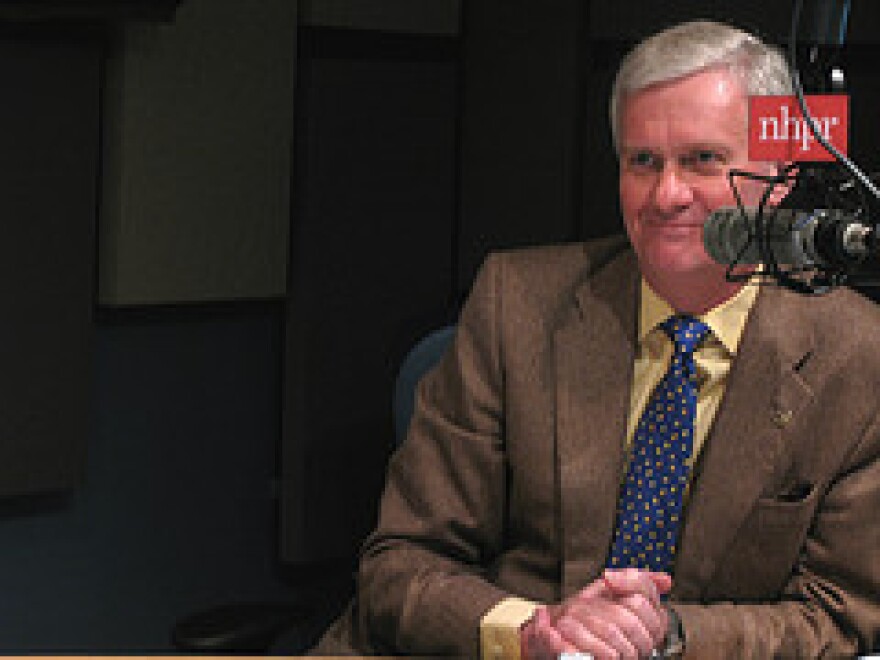How does University of New Hampshire President Mark Huddleston explain the size of the school's top salaries, including his own, to students and families struggling to pay tuition?
The leader of New Hampshire’s flagship university, speaking on NHPR's The Exchange Monday, said the school needs to offer competitive rates to attract the best talent — but Huddleston maintained that the school isn’t “overpaying” in the process.
“Some of the salaries look high compared to other salaries in the state, but we have a need for talent that is not necessarily commonplace,” Huddleston said, in response to a student who wrote into The Exchange to ask about executive compensation at the university. “We have people who are experts in their field, and we are competing in an international market to try to land them and keep them at UNH.”
“So the appropriate point of comparison is not to what the average salary in New Hampshire is; the appropriate point of comparison is the average salary of the field the person works in,” Huddleston continued. “I’d be shocked to have anyone find examples where UNH is overpaying for the talent we have in the various marketplaces that we compete in. We don’t.”
Huddleston said the university is moving toward a “performance-based pay system” in which employees receive a portion of their pay no matter what, with an additional chunk offered depending on “how well you do or how poorly you perform in that year.”
This isn’t the first time questions have been raised about the university’s pay structure. Last fall, as reported by Foster’s Daily Democrat, a group of faculty members specifically questioned the size of the “bonuses” being awarded to top officials at the university — and the lack of justification given for those extra payments.
In response, the school used a similar justification to the one offered by Huddleston — arguing that these were merit-based payments offered in an effort “to recruit and retain talent in the highly competitive job market.”
Based on the most recently available data from the Chronicle of Higher Education, Huddleston earned $385,000 in base pay during the 2013-14 year — plus an additional $94,710 in bonus pay. His total compensation of $479,710 put him ahead of nearly two-thirds of other public college presidents, according to the Chronicle.
UNH’s tuition and fees for the same year were among the highest for public colleges, in the 98th percentile.
As for faculty salaries, data from the Chronicle of Higher Education shows that professors, associate professors and assistant professors at UNH tend to earn more than both the state and national average. In the 2013-14 school year, for example, UNH professors earned an average nine-month equivalent salary of $123,993; the state average was $106,005 and the national average was $111,050.
“My pay and the pay of faculty members and of the folks who do our building and grounds all come from the various sources of our revenue — it’s put into a single pot, that pot is filled by student tuition dollars, it’s filled by state funds, it’s filled by earnings from our endowment, and so on. It’s a variety of sources of revenue,” Huddleston said on The Exchange.
According to the most recent financial data from UNH, tuition and fees make up a little over one-third of the school’s revenue. Salaries, wages and fringe benefits make up about 62 percent of expenses.
Huddleston's full conversation with The Exchange — focusing on the role of adjuncts, the balance between providing "soft skills" and more technical expertise, and other issues around college costs — can be heard below.








